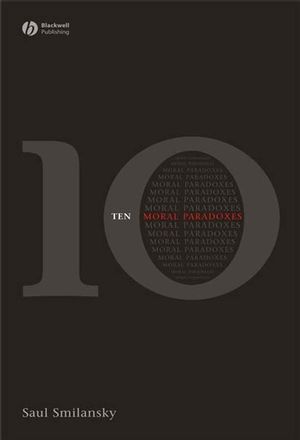10 Moral ParadoxesISBN: 978-1-4051-6086-5
Hardcover
160 pages
July 2007, Wiley-Blackwell
 This is a Print-on-Demand title. It will be printed specifically to fill your order. Please allow an additional 10-15 days delivery time. The book is not returnable.
Other Available Formats: Paperback
|
||||||
“Smilansky’s examples are freshly minted… They’re thought provoking, and Smilansky’s discussion is a pleasure… [I]f we take morality seriously, we need to reflect with open minds about the kinds of cases he describes, and finding views we can live with will constitute some kind of progress in our moral life.” (Mark Sainsbury FBA, Times Literary Supplement)
“Saul Smilansky's 10 Moral Paradoxes is a delightful book. The paradoxes are easy to appreciate and though it's written in a light and accessible style, it still has plenty of philosophical heft. ” (Michael Cholbi, PEA Soup)
“His writing is clear and lively. He avoids unnecessary technicalities. His ideas are grounded in vivid examples.” (Notre Dame Philosophical Reviews, May 2009)
“[B]rief, succinct, and a pleasure to read. Some of the chapters (for instance, the chapter on Fortunate Misfortune) would also make excellent reading for seminars on any undergraduate course… It is well worth reading.” (Theoria)
"This is a delightful and engaging little book. With its bite-size chapters, lively exposition, and important subject matter, this is the kind of book that can spark an interest in philosophy among those unfamiliar with it. But its appeal is not limited to neophytes; it poses significant new challenges to moral theory that even hardened professional philosophers will find stimulating and provocative."–Jeff McMahan, Rutgers University
"Smilansky has an unerring eye for noticing
intriguing – sometimes quite
startling – paradoxes, both in our common
unreflective attitudes to much of the business of ordinary life and
in our more reasoned positions on a wide variety of public issues
and personal concerns. From retirement to blackmail to punishment
to the nature of moral complaint, his ability to isolate the
anomalies and inconsistencies that beset our thinking about these
and other subjects provides us with a set of essays that are at
once provocative and illuminating. No one can fail to benefit from
reading this book."
–Hillel Steiner, Manchester University



